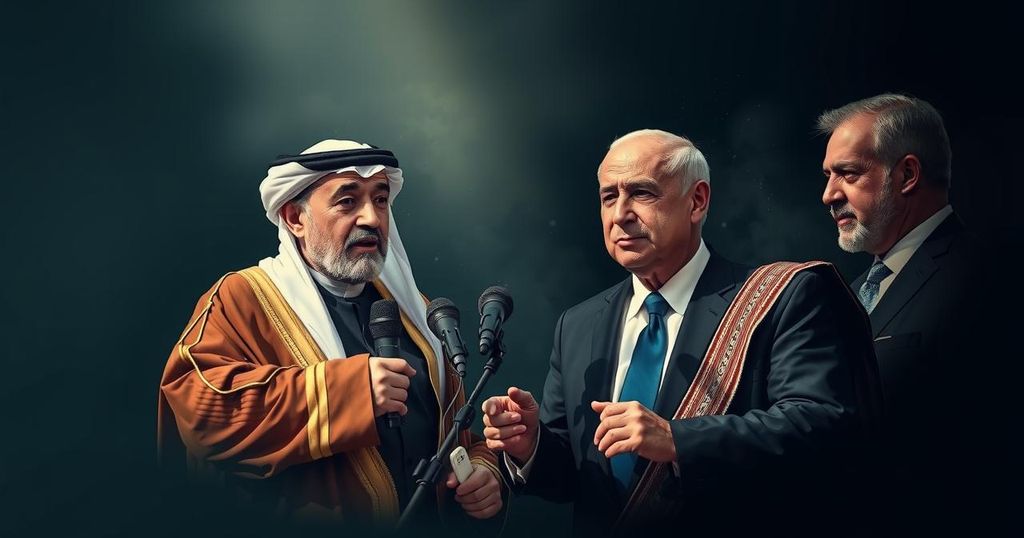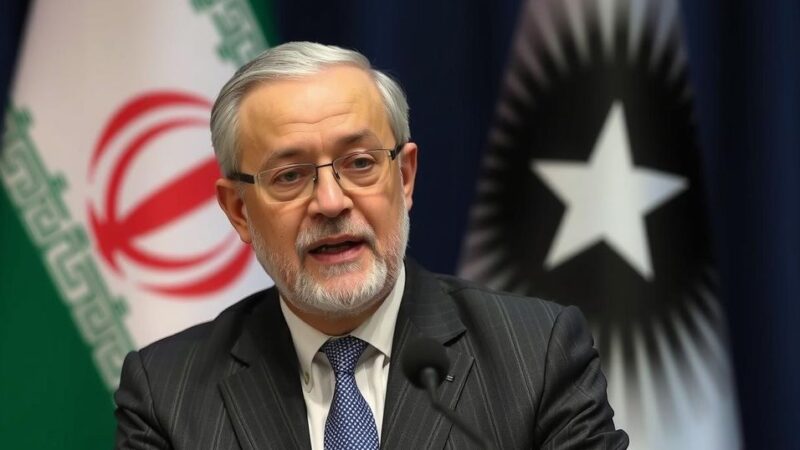Saudi Arabia and the UAE, along with other Middle Eastern countries, have condemned Israel’s military strikes on Iran, viewing them as violations of sovereignty. This condemnation comes after Iran launched missiles towards Israel, marking a significant escalation in tensions. Regional powers are calling for restraint, dialogue, and adherence to international law to prevent further conflict.
In a significant development, Saudi Arabia, the United Arab Emirates (UAE), and several other Middle Eastern nations have openly condemned the precision military strikes carried out by Israel against Iranian targets, branding the actions as a violation of international law and the sovereignty of Iran. This reaction follows an announcement from the Israel Defence Forces (IDF), which stated that it had executed targeted attacks on military installations in Iran. This escalation occurs in the aftermath of approximately 200 ballistic missiles launched by Tehran towards Israel about a month prior. In an official statement, the UAE expressed its serious concern regarding the rising tensions and their potential adverse effects on the stability and security of the region. The UAE’s Ministry of Foreign Affairs urged all involved parties to exercise utmost restraint and underscored the necessity of avoiding actions that could exacerbate the conflict. The Emirati ministry emphasized, “Exercising wisdom and avoiding actions that may expand the conflict are crucial at this time.” Furthermore, it reiterated the UAE’s position that diplomatic dialogue, coupled with respect for international law and state sovereignty, is essential for resolving current crises while steering clear of confrontational tactics. Saudi Arabia also renewed its dedication to preventing further regional escalation and warned of the dangers posed by ongoing military confrontations. The Kingdom called upon all entities to demonstrate maximum restraint and pursue de-escalation efforts. It urged the international community and influential stakeholders to actively engage in reducing tensions and addressing conflicts within the region. Qatar, currently mediating efforts to resolve the Gaza war, has expressed significant concerns over the ramifications of Israel’s military actions, highlighting the potential exacerbation of the existing conflicts. Likewise, Oman criticized the attacks, stating they “fuel the cycle of violence and undermine efforts” aimed at fostering peace. Kuwait’s foreign ministry, in a parallel response, condemned Israel’s actions, asserting they endanger regional security. This collective opposition from regional powers reflects deep-seated anxieties over continuing military hostilities and their implications for peace and stability in the Middle East.
The recent military actions by Israel against Iran represent a significant influence on the geopolitical dynamics of the Middle East. The strikes are perceived not only as a direct confrontation between Israel and Iran but also as a catalyst for escalating tensions involving other regional actors, such as Saudi Arabia and the UAE. Amidst a backdrop of prolonged conflict and instability marked by events such as missile exchanges and ongoing violence in areas like Gaza, these developments underscore the fragile state of security in the region. Saudi Arabia and the UAE’s calls for restraint and diplomatic negotiations highlight their commitment to maintaining regional stability against the backdrop of rising animosities.
In summary, the condemnation from Saudi Arabia, the UAE, and other Middle Eastern nations regarding Israel’s targeted strikes on Iran underscores a collective concern for regional sovereignty and stability. Emphasizing the need for diplomatic solutions, these nations advocate for restraint and dialogue rather than military escalation, reflecting their desire for a peaceful resolution to ongoing tensions. The responses from Qatar, Oman, and Kuwait further illustrate the widespread apprehension regarding the potential ramifications of military conflicts on the broader Middle East.
Original Source: www.business-standard.com







